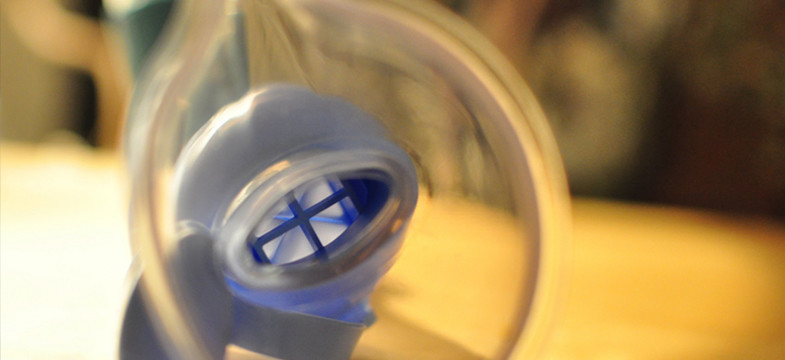Content
|
General and Local Anesthetic Require Vitamin B12
General and local anesthetic are essential for many operations and medical interventions. One of the most commonly used drugs used in anesthesia is nitrous oxide (N2O), otherwise known as “laughing gas”, however this anesthetic unfortunately has the side effect of depleting up to 60 percent of the vitamin B12 stored in the body.
No matter how necessary it may be, nitrous oxide is a poison for the body that must be rendered harmless. This can be done by allowing the substance to react with methylcobalamin or reduced cobalamin.
Through this, laughing gas breaks down into water and non-reactive nitrogen, and the central cobalt atom in vitamin B12 is oxidised (1). However, the resulting oxidised form of vitamin B12 is thereafter biologically inactive and cannot fulfil its important enzyme functions in methionine synthesis and the reactivation of folic acid. This deactivation is irreversible: the oxidised cobalamin is converted into ineffective B12 analogues and then excreted.
For the body to process nitrous oxide, it consumes so much vitamin B12 that a genuine health risk can arise. Anesthesia can lead to vitamin B12 deficiency, sometimes with severe symptoms.
Use of Nitrous Oxide in Anesthesia
This is of particular concern in view of current developments. Laughing gas was the clinical standard for anesthetics for decades at various levels. Today, the use of nitrous oxide for general anesthesia has declined slightly, but it is still used widely in dental practices and maternity care (2). It is also increasingly used in dermatology (3) and more worryingly in children’s dentistry (4). Furthermore, in minor surgery and treatment of injuries, N2O remains the standard.
Over the years, laughing gas has become a common party drug too – the use of which has also been known to trigger B12 deficiency (5).
Vitamin B12 Deficiency Through Laughing Gas
Vitamin B12 deficiency can easily occur when the vitamin requirement increases. This can sometimes lead to very severe B12 deficiency symptoms – ranging from depression, to the destruction of nerves in the limbs and spinal cord, to severe amnesia.
Nerve damage occurs particularly often here, since B12 is responsible for the development of the protective layer over the nerves (myelin sheath). Typical symptoms that indicate the beginnings of nerve damage are numbness or tingling sensations in the limbs, which usually occur a few days after anesthesia when the myelin sheaths have been worn down.
Upon the occurrence of B12 deficiency symptoms after anesthesia, there is an urgent need for action to prevent permanent damage.
Anesthesia and Vitamin B12 Deficiency
The effect of nitrous oxide is particularly critical when the drug is used on people who already have a latent B12 deficiency before an operation.
“Patients with vitamin B12 deficiency are exceedingly sensitive to neurologic deterioration following nitrous oxide anesthesia. If unrecognised, the neurologic deterioration becomes irreversible and may result in death” (6).
This assessment, based on a 1993 study, has been repeatedly confirmed by countless case studies and investigations (7-11).
The situation involving children is equally critical. Due to their youth, many children have not yet had time to build up an adequate B12 store, meaning that anesthetic can cause significant damage. The consequences for the development of the brain and nervous system seem to be particularly severe, which is why some researchers advise against the use of nitrous oxide in paediatrics altogether (12, 13).
Despite these very real and serious dangers, this information is only shared with a small number of patients today and appropriate countermeasures are almost never taken.
Key Points
|
Vitamin B12 Before General/Local Anesthetic
For many high-risk groups, it is advisable to top up the body’s store of B12 before an operation, in order to limit the chances of deficiency occurring as a result of the anesthesia. The effectiveness of the anesthesia will not be affected by this.
Amongst others, this is particularly important for:
- Vegans and vegetarians
- The elderly
- Children
A good quantity to take here would be a daily oral dose of 500 µg, starting 4 weeks before the surgery.
These risk groups should also pay particular attention to the use of nitrous oxide when visiting the dentist.
Vitamin B12 – A Must After Anesthesia
As a result of the dangers of a severe B12 deficiency, it is a matter of urgency to complete a course of vitamin B12 supplements after an anesthetic with nitrous oxide.
This can be achieved through either injections or oral supplements.
Type | Dose, Duration and Active Ingredient |
Injections | 1000 µg per week |
Oral supplements | 500 µg in the morning and evening |
Injections are necessary for treating very severe symptoms, as they are the quickest way of refilling the body’s B12 store. After operations in the stomach or intestine, injections can be particularly necessary, as oral supplements may be initially difficult to absorb.
In most other cases, an oral supplement should be sufficient for preventing deficiency.
Consequences of Anesthesia for the Vitamin B12 Stores
As a result of the high risk consequences, the effect of laughing gas on the body’s store of vitamin B12 has thus far only been tested on animals. Nevertheless, these studies unanimously came to the following conclusions (14, 15):
- Laughing gas destroys methylcobalamin and thus deactivates the enzyme methionine synthase
- 20 to 60 percent of the methylcobalamin in the blood plasma, cells and liver store are destroyed
- This leads to an increased number of inactive vitamin B12 analogues
- Vitamin B12 deficiency occurs
The worst finding in these results is certainly that, not only is the vitamin B12 in the serum destroyed, but also that in the cells and liver store too. Up to 60 percent of the B12 in the body’s store was depleted in animal testing; a dramatic loss, which can only be rebalanced after years on a normal diet.
Risk of Vitamin B12 Deficiency After Anesthesia
Whether or not B12 deficiency occurs after anesthesia and how severe it is, depends on the B12 status of the patient before it takes place.
With a high and healthy B12 level, the vitamin will drop but not to a critical low, before slowly replenishing itself over a long period of time, probably without the patient noticing. The non-specific symptoms of mild deficiency understandably often occur as a consequence of medical interventions.
With moderate to low B12 levels however, there is a high risk that an acute deficiency and very severe symptoms develop.
In all cases, it is advisable to top up the body’s B12 store after surgery. An oral supplement is the most common method, except in instances where there is a severe deficiency or oral intakes are not possible due to the type of operation.
Conclusion: Vitamin B12 and Anesthesia
The danger of vitamin B12 deficiency through anesthesia is high and the consequences are serious. A compensatory supplement is thus recommended after surgery, as the high loss of B12 cannot be easily replaced by the diet alone.
Since methylcobalamin is depleted above all other B12 forms after anesthesia, it is a particularly effective active ingredient in any supplements taken. Sustainable hydroxocobalamin is also a good option. In contrast, cyanocobalamin should not be chosen, as there are many metabolic conversion steps needed before it can be utilised by the body.
Sources
- Chanarin, I. Cobalamins and nitrous oxide: a review. Journal of clinical pathology, 1980, 33. Jg., Nr. 10, S. 909.
- Mohr, B. Lachgasanwendung in der Zahnheilkunde. Zahnmedizin up2date 2014; 8(1): 15-32
- Drosner, Michael. Lachgas-Sauerstoff-Inhalation. ästhetische dermatologie & kosmetologie, 2014, 6. Jg., Nr. 3, S. 1-7.
- Jeglitsch, A., F. G. Mathers, Bürkle V. Lachgassedierung in der Kinderzahnheilkunde. Stomatologie, 2014, 111. Jg., Nr. 4-5, S. 182-187.
- Pema PJ, Horak HA, Wyatt RH. Myelopathy caused by nitrous oxide toxicity. AJNR Am J Neuroradiol. 1998 May;19(5):894-6.
- Flippo TS, Holder WD Jr. Neurologic degeneration associated with nitrous oxide anesthesia in patients with vitamin B12 deficiency. Arch Surg. 1993 Dec;128(12):1391-5. Review. PubMed PMID: 8250714.
- Marié R, Le Biez E, Busson P, et al. Nitrous Oxide Anesthesia–Associated Myelopathy. Arch Neurol. 2000;57(3):380-382. doi:10.1001/archneur.57.3.380.
- Kathryn L. Holloway, M.D., and Anthony M. Alberico, M.D. Postoperative myeloneuropathy: a preventable complication in patients with B12 deficiency. Journal of Neurosurgery. May 1990, Vol. 72, No. 5, Pages 732-736
- Pema PJ, Horak HA, Wyatt RH. Myelopathy caused by nitrous oxide toxicity. AJNR Am J Neuroradiol. 1998 May;19(5):894-6. PubMed PMID: 9613506.
- Jameson, M et al. Nitrous oxide-induced vitamin B12 deficiency. Journal of Clinical Neuroscience, Volume 6, Issue 2, 164 – 166
- Hadzic A, Glab K, Sanborn KV, Thys DM. Severe neurologic deficit after nitrous oxide anesthesia. Anesthesiology 1995, 83(4):863-866
- Schmitt EL, Baum VC. Nitrous oxide in pediatric anesthesia: friend or foe? Curr Opin Anaesthesiol. 2008 Jun;21(3):356-9.
- Baum, V. C. (2007), When nitrous oxide is no laughing matter: nitrous oxide and pediatric anesthesia. Pediatric Anesthesia, 17: 824–830. doi: 10.1111/j.1460-9592.2007.02264.x
- Kondo H, Osborne ML, Kolhouse JF, et al. Nitrous oxide has multiple deleterious effects on cobalamin metabolism and causes decreases in activities of both mammalian cobalamin-dependent enzymes in rats. Journal of Clinical Investigation. 1981;67(5):1270-1283.
- Muir, M. and Chanarin, I. (1984), Conversion of endogenous cobalamins into microbiologically-inactive cobalamin analogues in rats by exposure to nitrous oxide. British Journal of Haematology, 58: 517–523. doi: 10.1111/j.1365-2141.1984.tb03999.x


